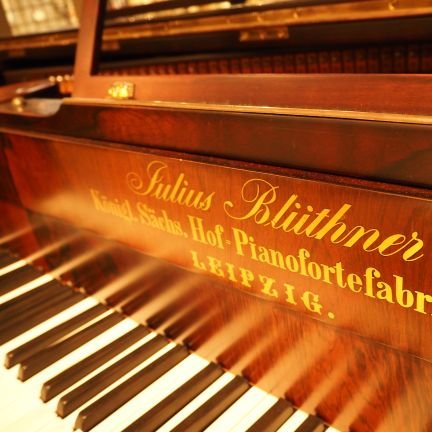結果
| 問題 | No.1301 Strange Graph Shortest Path |
| コンテスト | |
| ユーザー |
 riano riano
|
| 提出日時 | 2022-01-01 13:32:21 |
| 言語 | C++14 (gcc 15.2.0 + boost 1.89.0) |
| 結果 |
WA
|
| 実行時間 | - |
| コード長 | 5,763 bytes |
| 記録 | |
| コンパイル時間 | 1,941 ms |
| コンパイル使用メモリ | 195,072 KB |
| 実行使用メモリ | 31,128 KB |
| 最終ジャッジ日時 | 2024-10-10 02:42:53 |
| 合計ジャッジ時間 | 9,279 ms |
|
ジャッジサーバーID (参考情報) |
judge5 / judge3 |
(要ログイン)
| ファイルパターン | 結果 |
|---|---|
| sample | AC * 2 |
| other | AC * 28 WA * 5 |
コンパイルメッセージ
main.cpp: In function 'int main()':
main.cpp:194:17: warning: structured bindings only available with '-std=c++17' or '-std=gnu++17' [-Wc++17-extensions]
194 | auto[a,b,d] = ed[1][i];
| ^
main.cpp:198:17: warning: structured bindings only available with '-std=c++17' or '-std=gnu++17' [-Wc++17-extensions]
198 | auto[a,b,c] = ed[0][i];
| ^
ソースコード
#include <bits/stdc++.h>
using namespace std;
#define ll long long
#define rep(i,n) for(int i=0;i<n;i++)
#define rrep(i,n) for(int i=n-1;i>=0;i--)
#define rrep2(i,n,k) for(int i=n-1;i>=n-k;i--)
#define vll(n,i) vector<long long>(n,i)
#define v2ll(n,m,i) vector<vector<long long>>(n,vll(m,i))
#define v3ll(n,m,k,i) vector<vector<vector<long long>>>(n,v2ll(m,k,i))
#define v4ll(n,m,k,l,i) vector<vector<vector<vector<long long>>>>(n,v3ll(m,k,l,i))
#define all(v) v.begin(),v.end()
#define chmin(k,m) k = min(k,m)
#define chmax(k,m) k = max(k,m)
#define Pr pair<ll,ll>
#define Tp tuple<ll,ll,ll>
#define riano_ std::ios::sync_with_stdio(false);std::cin.tie(nullptr)
using Graph = vector<vector<Tp>>;
const ll mod = 998244353;
template<uint64_t mod>
struct modint{
uint64_t val;
constexpr modint(const int64_t val_=0) noexcept:val((val_%int64_t(mod)+int64_t(mod))%int64_t(mod)){}
constexpr modint operator-() const noexcept{
return modint(*this)=mod-val;
}
constexpr modint operator+(const modint rhs) const noexcept{
return modint(*this)+=rhs;
}
constexpr modint operator-(const modint rhs) const noexcept{
return modint(*this)-=rhs;
}
constexpr modint operator*(const modint rhs) const noexcept{
return modint(*this)*=rhs;
}
constexpr modint operator/(const modint rhs) const noexcept{
return modint(*this)/=rhs;
}
constexpr modint &operator+=(const modint rhs) noexcept{
val+=rhs.val;
val-=((val>=mod)?mod:0);
return (*this);
}
constexpr modint &operator-=(const modint rhs) noexcept{
val+=((val<rhs.val)?mod:0);
val-=rhs.val;
return (*this);
}
constexpr modint &operator*=(const modint rhs) noexcept{
val=val*rhs.val%mod;
return (*this);
}
constexpr modint &operator/=(modint rhs) noexcept{
uint64_t ex=mod-2;
modint now=1;
while(ex){
now*=((ex&1)?rhs:1);
rhs*=rhs,ex>>=1;
}
return (*this)*=now;
}
modint & operator++(){
val++;
if (val == mod) val = 0;
return *this;
}
modint operator++(int){
modint<mod> res = *this;
++*this;
return res;
}
constexpr bool operator==(const modint rhs) noexcept{
return val==rhs.val;
}
constexpr bool operator!=(const modint rhs) noexcept{
return val!=rhs.val;
}
friend constexpr ostream &operator<<(ostream& os,const modint x) noexcept{
return os<<(x.val);
}
friend constexpr istream &operator>>(istream& is,modint& x) noexcept{
uint64_t t;
is>>t,x=t;
return is;
}
};
typedef modint<mod> mint;
mint pw(long long a,long long b,long long m = mod){
if(a%m==0) return mint(0);
if(b==0) return mint(1);
else if(b%2==0){
long long x = pw(a,b/2,m).val;
return mint(x*x);
}
else{
long long x = pw(a,b-1,m).val;
return mint(a*x);
}
}
mint modinv(long long a, long long m = mod) {
long long b = m, u = 1, v = 0;
while (b) {
long long t = a / b;
a -= t * b; swap(a, b);
u -= t * v; swap(u, v);
}
u %= m;
return mint(u);
}
#define vm(n,i) vector<mint>(n,i)
#define v2m(n,m,i) vector<vector<mint>>(n,vm(m,i))
#define v3m(n,m,k,i) vector<vector<vector<mint>>>(n,v2m(m,k,i))
#define v4m(n,m,k,l,i) vector<vector<vector<vector<mint>>>>(n,v3m(m,k,l,i))
//Graph
struct graph {
long long N;
vector<vector<tuple<long long,long long,int>>> G;
vector<long long> par_v;
vector<long long> par_e;
int edge_count = 0;
graph(long long n) {
N = n;
G = vector<vector<tuple<long long,long long,int>>>(N);
par_v = vector<long long>(N,-1);
par_e = vector<long long>(N,-1);
}
void unite(long long a,long long b,long long cost = 1,bool directed = false){
G[a].emplace_back(b,cost,edge_count);
if(!directed) G[b].emplace_back(a,cost,edge_count);
edge_count++;
}
};
vector<ll> dijkstra(graph &g,int s){
ll N = g.G.size();
priority_queue<Pr, vector<Pr>, greater<Pr>> go;
ll x,y,a,t,l; ll inf = 2e18;
vector<ll> dist(N,inf);
go.push(make_pair(0,s)); dist[s] = 0;
Pr p;
while(!go.empty()){
p = go.top(); go.pop();
x = p.first; y = p.second;
if(x>dist[y]) continue;
for(auto q:g.G[y]){ //G[y]:Graph
a = get<0>(q); t = get<1>(q); l = get<2>(q);
if(x+t<dist[a]){
dist[a] = x+t;
g.par_v[a] = y;
g.par_e[a] = l;
go.push(make_pair(x+t,a));
}
}
}
return dist;
}
//shortest path (edge)
vector<ll> shortest_e(graph &g,int goal,int start = 1){
int now = goal;
vector<ll> path;
while(now!=-1){
path.push_back(g.par_e[now]);
if(now==start) break;
now = g.par_v[now];
}
path.pop_back();
reverse(path.begin(),path.end());
return path;
}
int main() {
riano_; ll ans = 0;
ll N,M; cin >> N >> M;
vector<vector<Tp>> ed(2);
graph G(N+1);
rep(i,M){
ll a,b,c,d; cin >> a >> b >> c >> d;
ed[0].emplace_back(a,b,c);
ed[1].emplace_back(a,b,d);
G.unite(a,b,c);
}
auto d1 = dijkstra(G,1);
auto p = shortest_e(G,N);
//for(ll id:p) cout << id << endl;
vector<bool> used(M,false);
for(ll id:p) used[id] = true;
graph G2(N+1);
rep(i,M){
if(used[i]){
auto[a,b,d] = ed[1][i];
G2.unite(a,b,d);
}
else{
auto[a,b,c] = ed[0][i];
G2.unite(a,b,c);
}
}
auto d2 = dijkstra(G2,1);
ans = d1[N]+d2[N];
cout << ans << endl;
}
